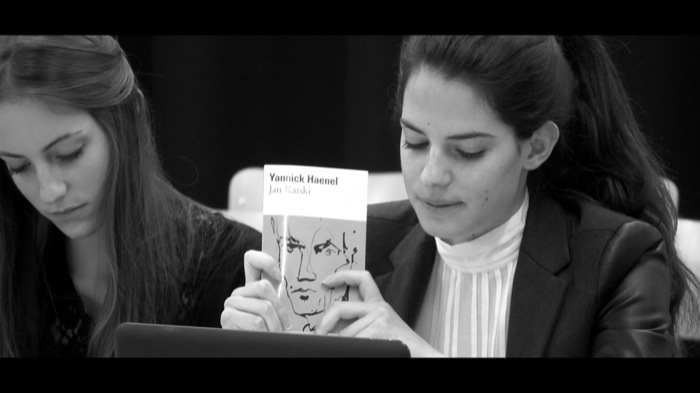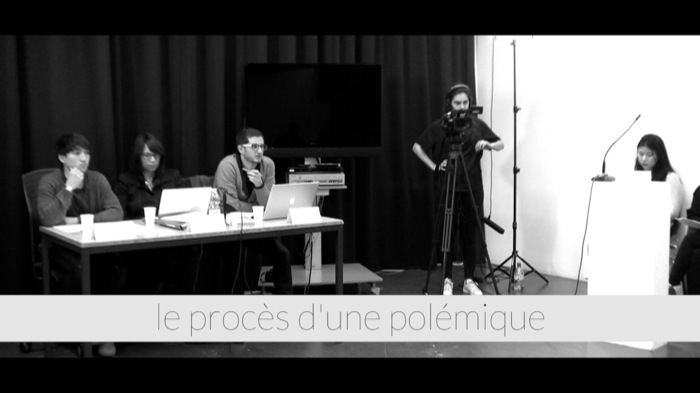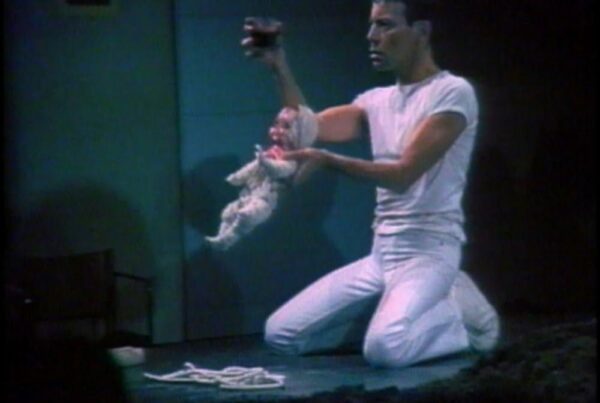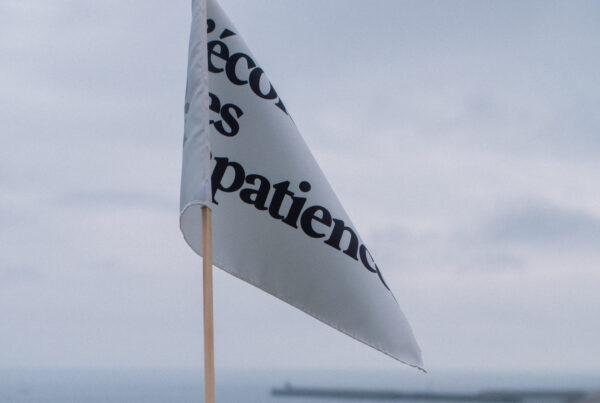“The Trial of a Controversy.
Jan Karski, history and fiction.”
Dir. Aliocha Imhoff & Kantuta Quiros,
with the students of the workshop led in February 2014, option Information fiction of the Haute école d’art et de design – Genève, Frank Westermeyer, Bruno Serralongue et Pascal Beausse.
In 2009, French writer Yannick Haenel won the Prix Interallié for his novel “Jan Karski”, published by Gallimard, based on the life of the eponymous resistance leader, diplomat and Polish government courier in exile in London, who in 1942 witnessed the horror of the Nazi camps and was responsible for alerting the Allies to the fate of Europe’s Jews. In 1943, Jan Karski met the American president at the White House for a lengthy discussion. Two diplomatic documents attest to this, but no one knows exactly what they said to each other, or how Roosevelt reacted to his account of the unbearable. Wishing to “bear witness for the witness”, Yannick Haenel imagines in the third part of his book the unfolding of this meeting, and proposes – in the face of the silences of the archives and the silences of the witnesses – a fictionalization of history, based on a deliberately intuitive approach. Throughout the first quarter of 2010, a heated controversy ensued, sparked in particular by the filmmaker and author of Shoah, Claude Lanzmann, who accused Yannick Haenel of falsifying history.
This lively and complex controversy redeployed the following question in the public arena and in the media: is history contained solely in documents, sources and the material traces left by the past, or is it sometimes necessary, as Y. Haenel asserts, to resort to the “historical record”? Haenel, to resort to fiction as a particular mode of knowledge that exceeds or complements those of “historical science” or the documentary approach? Do we have the right to fictionalize history?
Following in the footsteps of numerous fictitious trials and tribunals, notably those initiated by contemporary artists and filmmakers (Anton Vidokle, Olive Martin & Patrick Bernier, Marcel Hanoun, Jean-Stéphane Bron, Abderrahmane Sissako, not to mention the inescapable Surrealist trials conducted by André Breton in the 1930s), this film, a cross between judicial aesthetics and speculative verbal space, retraces the fictitious trial conducted with HEAD students.
Through the presentation of documents and testimonies, the court and the jurors thus constituted by the HEAD students will determine the right to fictionalize history, as well as the responsibility of the artist and writer.
First public presentation as a part of the exhibition “Counter-Histories / Counter-Stories” at “Interim” inside the Kulturbahnhof Kassel.
The exhibition is a collaboration between The Dokfest Kassel, the Kunsthochschule Kassel, Klasse Film and the option Information Fiction of HEAD – Geneva (Bruno Serralongue, Frank Westermeyer, Pascal Beausse).
Opening November 12, 2014, exhibition from 13th to 16th November.











